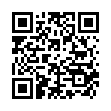|
This article is cited in 2 scientific papers (total in 2 papers)
Artificial Intelligence, Knowledge and Data Engineering
Method and models of extraction of knowledge from medical documents
R. Zulkarneeva, N. Yusupovab, O. Smetaninab, M. Gayanovab, A. Vulfinb
a Bashkir State Medical University
b Ufa State Aviation Technical University
Abstract:
The paper analyzes the problem of extracting knowledge from clinical recommendations presented in the form of semi-structured corpora of text documents in natural language, taking into account their periodic updating. The considered methods of intellectual analysis of the accumulated arrays of medical data make it possible to automate a number of tasks aimed at improving the quality of medical care due to significant decision support in the treatment process. A brief review of well-known publications has been made, highlighting approaches to automating the construction of ontologies and knowledge graphs in the problems of semantic modeling of a problem-oriented text corpus. The structural and functional organization of the system of knowledge extraction and automatic construction of an ontology and a knowledge graph of a problem-oriented corpus for a specific subject area is presented. The main stages of knowledge extraction and dynamic updating of the knowledge graph are considered: named entity extraction, semantic annotation, term and keyword extraction, topic modeling, topic identification, and relationship extraction. The formalized representation of texts was obtained using a pre-trained BERT transformer model. The automatic selection of triplets "object" - "action" - "subject" based on part-of-speech markup of the text corpus was used to construct fragments of the knowledge graph. An experiment was carried out on a corpus of medical texts on a given topic (162 documents of depersonalized case histories of patients of a pediatric center) without preliminary markup in order to test the proposed solution for extracting triplets and constructing a knowledge graph based on them. An analysis of the experimental results confirms the need for a deeper markup of the corpus of text documents to take into account the specifics of medical text documents. For an unmarked corpus of texts, the proposed solution demonstrates satisfactory performance in view of the selection of atomic fragments included in the automatically generated ontology.
Keywords:
clinical texts, information extraction, machine learning, medical data mining, automatic ontology building, knowledge graphs.
Received: 28.07.2022
Citation:
R. Zulkarneev, N. Yusupova, O. Smetanina, M. Gayanova, A. Vulfin, “Method and models of extraction of knowledge from medical documents”, Informatics and Automation, 21:6 (2022), 1169–1210
Linking options:
https://www.mathnet.ru/eng/trspy1222 https://www.mathnet.ru/eng/trspy/v21/i6/p1169
|

|




 Contact us:
Contact us: Terms of Use
Terms of Use
 Registration to the website
Registration to the website Logotypes
Logotypes








 Citation in format
Citation in format 
